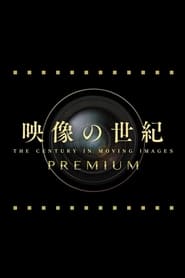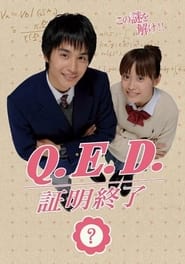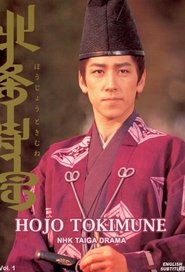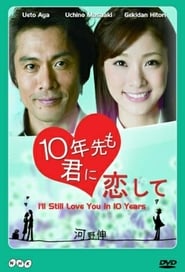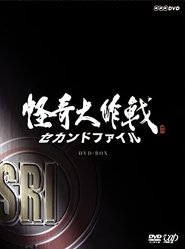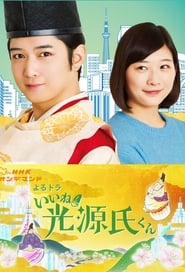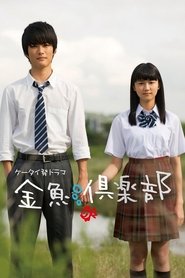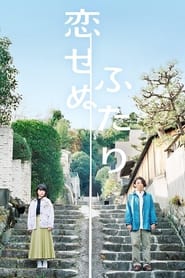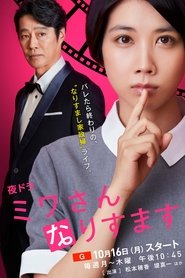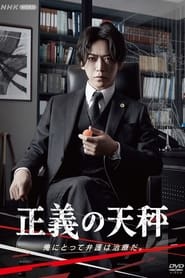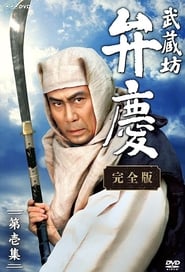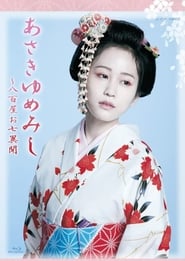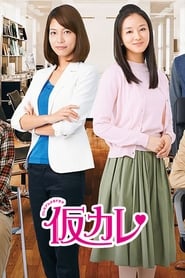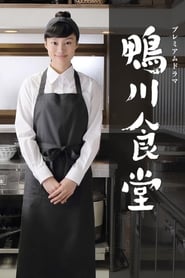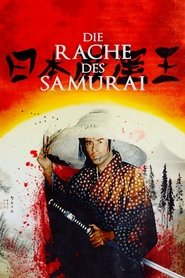Nhk TV Series - Page 10
-
NHKスペシャル 沸騰都市
2008
NHKスペシャル 沸騰都市
2008
-
映像の世紀プレミアム
2016
映像の世紀プレミアム
2016
-
Lion Snack
2021
Lion Snack
2021
The "Lion's House" is the name of a hospice located on a beautiful island. The people who live there are people with a short life expectancy. Shizuku, a 29-year-old who was told how long she had to live at a young age, comes to live there. She feels a little regretful over not being able to improve her relationship with her family before coming. At the "Lion's House", snack time is a time where the residents are allowed to request a snack from their memories but Shizuku is unable to choose. The days of laughter and tears begin alongside the other residents. What does Shizuku find and leave behind in the last days of her life? -
Q.E.D. -- Teen Detectives
2009
star 6A classic teen whodunit series! A girl with boundless curiosity and a boy math genius pair up to solve baffling mystery cases. -
Hojo Tokimune
2001
Hojo Tokimune
2001
The 40th NHK Taiga Drama is Hojo Tokimune. It tells the dramatic and turbulent life of young shikken Hojo Tokimune, and his successful defense of Japan from invasion by Mongolia in the 1200's. It is a tragic story of betrayal and clan wars and Hojo Tokimune is at the center of it all. The main focus of the story is Hojo Tokiyori's older sons, their relationship, and their views and actions concerning Kublai Khan's attempted invasion. The two brothers, Tokimune and Tokisuke, are torn apart by politics. -
I'll Still Love You in 10 Years
2010
star 1The story focuses on 26-year-old Rika (Ueto), a single editor who is unskilled in love. The story starts when a man (Uchino) appears before her, telling her that he is her husband from 10 years in the future. He informs her that she will meet the young version of himself in a few days, but begs her not to marry him. Tokyograph -
Kaiki Daisakusen - Second File
2007
star 8Modern remake of the Kaiki Daisakusen / Operation Mystery tv show. A special unit called SRI (Science Research Institute) is investigating mysterious cases. -
Iine! Hikaru Genji-kun
2020
star 4.5Saori Fujiwara comes back home after work. She opens a bamboo blind and burns incense. She purchased the bamboo blind and incense while in Bali. With the relaxed setting, Saori Fujiwara takes a nap, but, suddenly, a man dressed in clothing from the Heian period appears in front of her. She talks to him. Suddenly Saori Fujiwara thinks of the name Genji Hikaru, the protagonist of from classic literature "The Tale of Genji." She blurts out "Genji Hikaru" and the man unexpectedly hugs her. -
生存 愛する娘のために
2002
生存 愛する娘のために
2002
A human suspense drama in which a man who was told that he had three months to live searches for the truth about his daughter who disappeared 14 years ago and regains the power to live himself -
Goldfish Club
2011
Goldfish Club
2011
Irie plays Hiiragi Haru, a third-year high school student with no real interest in women or higher education, instead choosing to live his life idly. When he notices a first-year student named Harukawa Koto being bullied, he lends her a hand, and the two form a “goldfish club” just for themselves. While love begins to bloom between them, the bullying against Koto continues to escalate. --- Tokyograph -
Two People Who Can't Fall in Love
2022
star 9.3About two people who are aromantic and asexual and begin living together. Sakiko finds it difficult to live in a society which operates under the assumption that people will fall in love with each other. She meets supermarket employee Takahashi when she goes to support a "fall-in-love" campaign by her junior at work. She is startled when she hears him say that there are people who don't fall in love. As Sakiko's mother keeps hurrying her to get married, she decides to move out and rent an apartment with her friend but her friend backs out at the last minute after reconciling with her ex-boyfriend. Just when Sakiko is about to give up, she ends up living with Takahashi under one roof because of their similar values towards romance. -
Impersonating Miwa
2023
star 7Miwa Kubota is a 29-year old movie fanatic who just got fired from her dead-end job. She saw that her favorite actor, the world-renowned Takahashi Yakai, is looking for a housekeeper. Even though she is totally unqualified, she goes there anyway. When she saw the new hire get into an accident outside his door, Miwa steps in to become the "pretend" housekeeper for her idol. -
The Scales of Justice
2021
star 7A genius lawyer who changed jobs from a doctor, while suffering from the tragedy of false accusations, leads an out-of-force team to uncover the truth of numerous difficult cases and save the souls of those involved in the case. -
Musashibo Benkei
1986
Musashibo Benkei
1986
After being carried in his mother’s womb for three years, Benkei is born with long hair and teeth and the body of a small child. It is said that he immediately laughed and commented on the brightness of the outside world, leading local people in his native Kii (modern Wakayama) to proclaim that he is a devil. Abandoned on a mountainside, he is adopted by Dainagon, a Kyoto resident who rears him until age seven when he leaves to become a monk. Thrown out of the monastery for his violent behavior, Benkei wanders Japan in search of enlightenment, though only trouble seems to find him. After accidentally causing a temple to burn down, he decides to begin a quest to defeat 1,000 of the hated Heike samurai in battle and donate their swords to a temple. Obtaining the first 999 swords proves relatively easy but the final weapon belongs to Yoshitsune, a young boy whose appearance belies his great skill as a warrior. -
Asaki Yumemishi
2013
Asaki Yumemishi
2013
It’s 1681, Oshichi is the daughter of Kihee and Ofusa who own a vegetables store. Unfortunately the store burns down in a fire, while it’s being rebuilt Oshichi is sent to a temple. There she meets and falls deeply in love with Kichisaburo. Together they take care of and teach homeless children. However, after having returned home Oshichi learns that her father has someone else in mind as her future husband. -
Bullets, Bones and Blocked Noses
2021
Police dog handler Ippei Aoba has a problem. It's called Oliver. To others, Oliver is a genius police dog that comes from a long line of geniuses, but, to Ippei, he appears—literally—as a lazy, foul-mouthed, middle-aged man in a dog costume. -
Kari Kare
2015
Kari Kare
2015
-
Kamogawa Shokudo
2016
star 6Customers relying on a single line advertisement “Search for food with memories”, finally arrive at Kamogawa Shokudo, which has no signboard or fabric curtain. Those who come to this inconspicuous eatery near Higashi Honganji in Kyoto are people of today who have troubles. Work, family, life, love, interpersonal relationships… Although their troubles are wide-ranging, the eatery’s poster girl Kamogawa Koishi accepts customers’ troubles with sincerity while her father, Nagare uses the instincts and powers of observation honed as a detective, to identify what meals customers truly desire and demonstrates his skills by recreating them. Customers who eat the “food with memories”, which are the fruits of the efforts of Koishi and Nagare, will leave Kamogawa Shokudo, finding the courage to live and pleasures of life.

